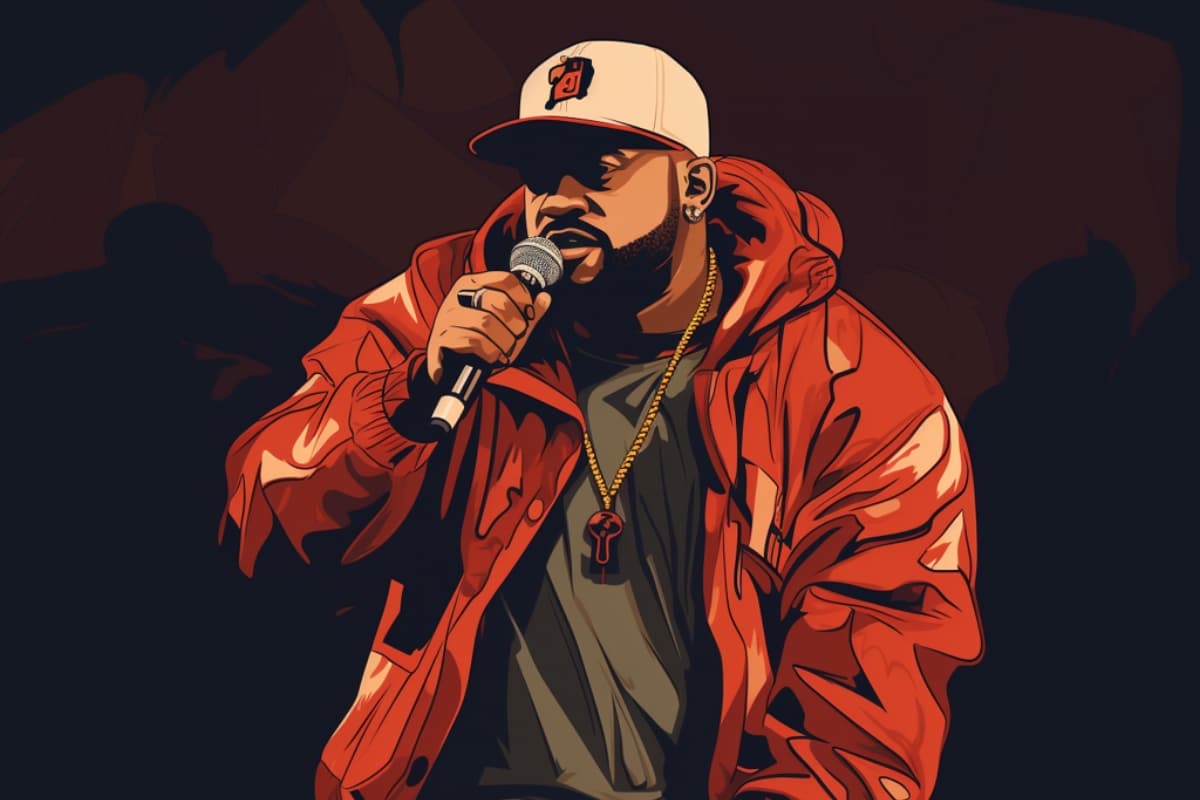“Mighty Healthy” is a raw cut from Ghostface Killah’s acclaimed album “Supreme Clientele.” The track exemplifies Ghost’s style—gritty, complex, and replete with street philosophy. Through a thick web of metaphors and references, he paints a vivid picture of urban life, street hustle, and the mind of a man who’s seen much.
Ghostface opens with a sample discussing the nature of killers, setting a tone of ruthlessness that’s echoed in the streets he describes. When he talks about his hands being “clusty,” he’s bringing that raw, unfiltered street vernacular to the forefront, metaphorically stating he’s ready for action, hands dirty from the work he’s doing. “Purple tape, Rae co-host” nods to Raekwon’s legendary album “Only Built 4 Cuban Linx…” which Ghostface co-starred on, known for its purple cassette tape.
The journey through Ghost’s thoughts and his environment is cryptic. He talks about “Turn nuns to Earths” referring to the Five-Percent Nation terminology where women are Earths, nurturers of civilization. The “Duracell knot” could be a nod to a pack of money so thick it’s like a battery. When he speaks on the “Candyland kids,” it’s a critique of those living in a fantasy, ignorant of the real struggles.

Ghostface doesn’t shy away from social commentary—“Blacks become immune and shit, we never did”—highlighting resilience in the face of societal issues. The lines about “Men marrying men” and the pharmacy over herbs might reflect his views on changes in society and natural medicine versus pharmaceuticals.
As he continues, Ghost flexes his lyrical prowess and status in the game—comparing himself to tech moguls with “Neck to neck stock with Bill Gates now.” The verse “Hit mics like Ted Koppel” shows his dominance in rap, as effortless as a news anchor delivering the nightly news, and the rifle is his sharp lyricism.
The track also brags about his life—“Wifey on the beach sipping Zima”—and maintains a connection with his roots, referencing “Wu ‘binos to Latinos,” showing the Wu-Tang Clan’s reach across cultures. Ghostface contrasts his luxurious life with his hard street mentality, as seen in lines like “smack ’em, say when” showing readiness for confrontation.
The outro samples reiterate the theme of killers, reflecting the cutthroat nature of the streets and the rap game. Ghostface Killah, through this track, solidifies his reputation as an uncompromising storyteller and a heavyweight in hip-hop.








